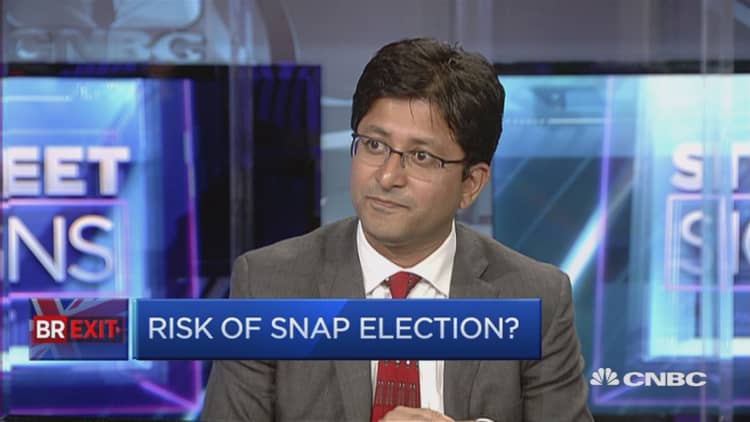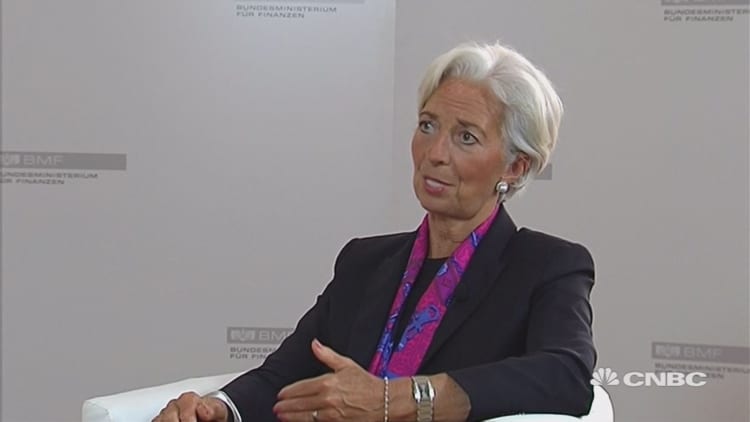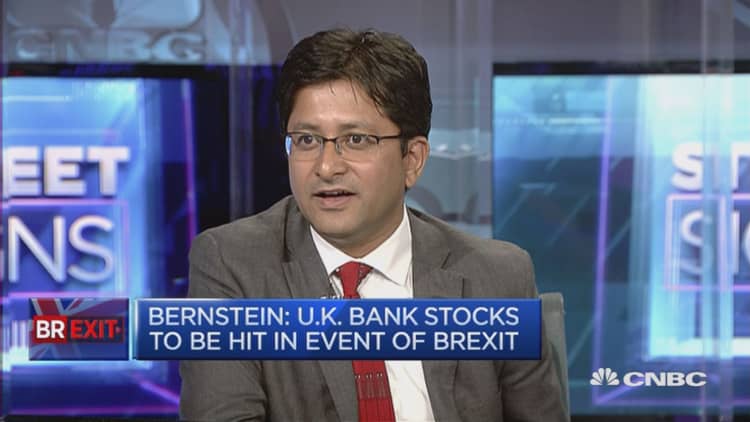


Young voters could hold the key to whether the U.K. stays or remains within the European Union (EU) in the forthcoming referendum on EU membership on June 23, but with a traditionally lower voter turnout, whether they will exercise their vote is uncertain.
The vote seems to have polarized the nation and pitted family members against each other down generational lines, with older voters seen as largely leaning towards a vote to leave the 28-country union. With traditionally higher voter turnout among the older generation, campaigners in the remain team are worried, with good reason.
In the month ahead of the referendum, opinion polls have swung from giving the remain team as much as a 10-point lead in mid-May to giving the leave camp a lead, rattling financial markets and sterling at the end of May.
Opinion polls over the weekend showed that the remain camp was regaining momentum ahead of the referendum giving global markets a boost. Opinion polls published overnight by ORB/The Telegraph and The Times newspaper/YouGov, however, sent out conflicting signals with each showing a slight lead for the respective sides.
The youth factor
The need to galvanize young voters has not been lost on politicians. In late May, former Labour leader Ed Miliband issued a "call to arms" to young people to turn out to vote to stop a so-called Brexit – the popular term for the U.K. potentially leaving the EU.
Alarmingly, he noted, 1.5 million young people aged 18 to 24 who are entitled to vote are not on the electoral register with a further 2 million people aged between 25 and 35 not registered either.
Read More Myth-busting in the Brexit debate
"Today is a call to arms to all young people to register to vote. Let's be clear about the danger: a decision not to vote, is a decision to let someone else decide your future," he said, adding: "'Be in no doubt: if young people don't exercise their vote, this referendum will be lost and so will many of their futures.
The last day for people to register to vote was June 7 and the U.K.'s voter registration website crashed due to the surge of around 525,000 people trying to register, showing that the vote has captured the public's imagination. Crucially, government figures on voter registration showed that the largest group applying to vote were aged 25-34 (170,000), followed by under-25s (132,000).
Carsten Nickel from Teneo Intelligence, told CNBC that "younger voters could be one of the core groups swaying the vote in one direction or the other."
"Younger voters tend to be more Europhile - but they are also less likely to turn out than the older, generally more Euroskeptic parts of the electorate. Whether young voters will shake off their political apathy (and whether Prime Minister David Cameron manages to get them involved) will be a key factor to watch in the weeks remaining until referendum day," he said.
Nickel noted that the question of younger voters was only one aspect of the general issue of mobilization, albeit a "crucial" one, he said. "The debate is highly polarized and both camps do not seem to have exhausted their full potential of core voter mobilization. This bears the potential for unexpected swings in overall voting intentions. The result is heightened uncertainty until 23 June."
Mujtaba Rahman, practice head of Europe at Eurasia Group, told CNBC that the remain campaign would use the time leading up to the vote to court young voters and that cross-party collaboration by the remain camp was designed to capture that vote.
"What we're seeing is that there is a need to mobilize the younger Labour and Liberal Democrat vote. At the end of May, we saw joint staged intervention (at a remain rally in London) by Prime Minister David Cameron (a Conservative) and London Mayor Sadiq Khan (from the Labour party) that was designed to appeal to and mobilize the younger voter," he told CNBC.
He said that the older generation of voters tended to be more positive towards the EU, seeing "progress" in areas such as health and climate change.
Older voters, on the contrary, were more "comfortable" with the idea that the U.K. could go it alone and were skeptical in light of current problems such as economic growth, the refugee crisis and immigration.
Voter turnout
While most polls suggest the remain campaign has a modest lead (will check before publication), one persistent concern has been that low
turnout could skew the result in the direction of those who are more ardently opposed to the EU and hence more mobilized to vote.
However, an economist from JPMorgan Chase, Allan Monks, said in a note earlier in June that it could be a "little overdone" to believe that a low voter turnout could hand an advantage to the "Leave" campaign whose "supporters are more passionate about their cause."
In fact, he said that an analysis of a recent ComRes survey showed that young people were much more engaged with the referendum vote than with last year's general election.
"A large proportion of support for 'remain' is concentrated among younger voters, who traditionally are less likely to vote. But when we compare survey respondents' expected turnout for the EU referendum to last year's general election, we find that 18- to 24-year-olds are the only age group indicating a higher likely turnout," Monks noted.
"In contrast, voters aged over 45 indicate a significantly lower expected turnout at the EU referendum compared to the last general election."
Eurasia Group's Rahman agreed, saying that none of his team's research had shown a lack of enthusiasm among younger voters. "This vote will appeal to a younger generation because it's ultimately about their future."


